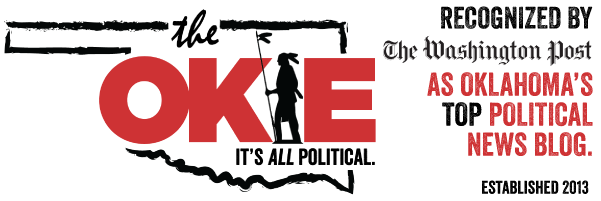OCPA Researcher Discusses Lyft/Uber on the Eve of OKC Council Debate on Rides
Five Questions for Officials about Lyft, Uber
By Trent England, OCPA
Public officials always hear from the interest groups, but what about everybody else? And how about some data? Here are five basic questions policymakers should be asked—and be able to answer—before voting on proposed regulations. The debate is ongoing in Oklahoma City; citizens can contact their council members.
1. Why do people choose Lyft and Uber? The new services only threaten the status quo by offering something different. Oklahoma City Councilman Pete White claims taxis and the new services are the same because they are all just “taking people from Point A to Point B.” Yet what is regulated is the means not the ends—the “how,” not the “why.” If their constituents can distinguish Lyft and Uber from taxis, policymakers can too, and should try to understand why many consumers opt for the new services.
2. Why does government regulate taxis? Government rules are not supposed to be arbitrary, nor intended to “protect” one company or business model from another. In fact, there are reasons for taxi regulations. Taxi passengers and drivers have no information about each other and little opportunity bargain, so government steps in with regulations intended to guarantee the basic terms of the arangement. The genius of Lyft and Uber is that they eliminate anonymity, provide information, and allow time for each party to make a real choice.
3. What do taxi regulations actually do? The question is not what they are intended to do, but what regulations actually do. If consumers think regulated taxis are less safe than Lyft and Uber cars—especially if this turns out to be true (another obvious question for policymakers)—that should cause much soul-searching in government. Regulators and policymakers love to talk about their intentions, but what matters are results. So far, the debate over regulating Lyft and Uber has been long on intentions and assumptions, short on data about whether taxi regulations actually work.
4. What complaints have you received from customers? Have Lyft and Uber customers complained? On the other hand, if Lyft and Uber customers are happy, what exactly is the problem? And what about taxi customers, what are they saying? Companies’ fear of lost profits due to new competition is not a problem for government. Modern technology that allows private individuals to solve problems that once required government intervention is not a crisis. Government’s job is not to protect old ways from new ideas.
5. Have you used the new services? An official willing to impose regulations on services like Lyft and Uber without making the minor effort to use these services and understand how they work is both arogant and lazy. Even if they have the very best intentions.

